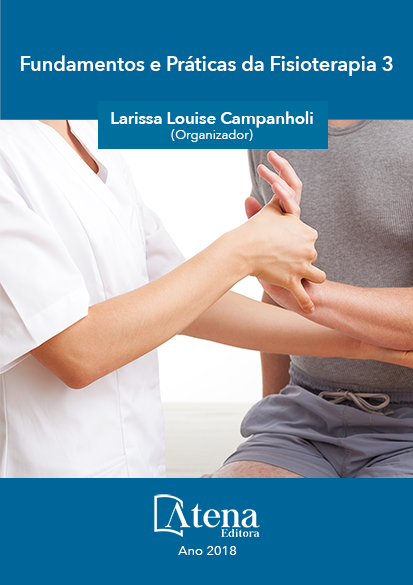
O IMPACTO DA POSIÇÃO PRONO NO DESENVOLVIMENTO MOTOR DE BEBÊS DE 1 A 4 MESES DE IDADE
Objetivo: Esse estudo avaliou a
influência da posição prono nas aquisições
posturais de bebês entre o primeiro e quarto
mês de vida.
Métodos: Estudo descritivo, observacional,
de caráter comparativo e associativo, com
abordagem transversal, no qual participaram 92
bebês, entre um e quatro meses, inexperientes
na postura prono (IPP), provenientes UBS’s
das cidades de Caxias do Sul e Porto Alegre.
O grupo de bebês foi avaliado com a Alberta
Infant Motor Scale, em prono (21 itens), supino
(9 itens), sentado (12 itens) e em pé (16 itens) e
comparados aos valores das curvas nacionais.
Foi utilizada estatística descritiva e teste t one
sample (p≤0,05).
Resultados: Os bebês avaliados, tanto no
geral quanto nas faixas etárias ficaram abaixo
do percentil nacional, havendo um predomínio
de bebês (53,5%) com suspeita de atraso no
desenvolvimento. Os grupos de bebês com
idade de um e quatro meses demonstram
maiores déficits motores, apresentando,
respectivamente, 18,2% e 23,5% dos bebês
com atraso no desenvolvimento. Comparando
com as curvas nacionais, o grupo IPP está
significativamente abaixo da média de
desempenho motor no primeiro mês de vida
(p=0,004).
Conclusão: O estudo demonstra que a
inexperiência em prono tem influencia negativa
no desenvolvimento motor. Sugere-se a realização de pesquisas longitudinais para
avaliar a influência do prono com desenvolvimento no decorrer dos anos, determinando
quando esta pratica maternal passa a ser determinante nas aquisições futuras das
crianças.
O IMPACTO DA POSIÇÃO PRONO NO DESENVOLVIMENTO MOTOR DE BEBÊS DE 1 A 4 MESES DE IDADE
-
DOI: atena
-
Palavras-chave: Desenvolvimento Infantil; fatores de risco; destreza motora.
-
Keywords: Child Development; Risk factors; Motor Skills.
-
Abstract:
Objective: This study assessed the influence of the prone position on the
development of postural acquisition of infants.
Methods: Descriptive, observational study, with a comparative and associative character
and a cross-sectional approach, in which 92 infants from one to four months old, all
participants from UBS’s in the cities of Caxias do Sul and Porto Alegre. The group of
children with little experience in prone posture were assessed in prone (21 items),
supine (9 items), sitting (12 items) and standing (16 items) and compared to the values
of the national curves. Descriptive statistics was used, with one-sample t-test, being
significant (p≤0.05).
Results: The assessed babies, both in general and in the age groups, were below
the percentile, with a predominance of 53.5% of infants suspected of developmental
delay. The groups of infants with one and four months of age are the ones that show
the largest motor deficits, presenting, respectively, 18.2% and 23.5% of the babies
with developmental delay. Comparing with the national curves, the PPI group showed
scores significantly below the average in the first month of life (p = 0.004).
Conclusion: The study shows that the prone position has a negative influence on motor
development. Knowing this, health professionals can intervene in the delays of motor
development. It is suggested that longitudinal research be conducted to assess the
influence of prone with development over the years, determining when this maternal
practice becomes determinant for the future motor acquisitions of children
-
Número de páginas: 15
- Sâmya Pires
- Bruno Soldatelli Zardo
- Raquel Saccani
- Nadia Cristina Valentini
- Bruna Frata
- Natália Chies


